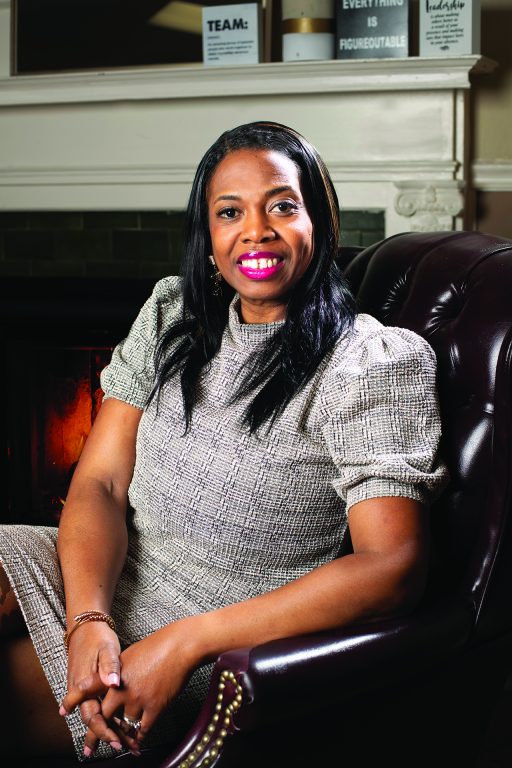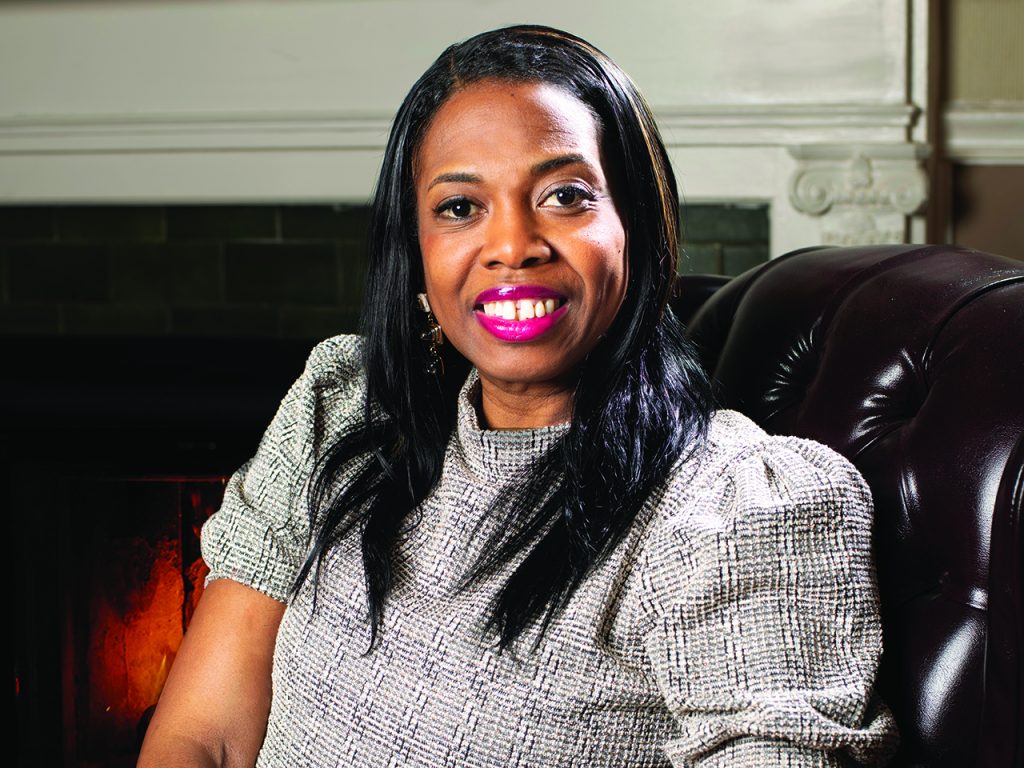Dr. Denise Watts aims to rally a village of educators, administrators and parents around raising students’ literacy rates
Written by KA’DIA DHATNUBIA
Photo by D. LAWRENCE BARKSDALE
PUBLIC EDUCATION IS A SLIPPERY BEAST with many heads and tails. When examined closely, the African proverb “It takes a village to raise a child” rings with undeniable truth.
However, it’s difficult at times to define what exact role everyone plays in the success of a young person’s education, especially considering the constant fluctuation of teacher-parent relations, school staff turnover and lack of resources allocated to underserved schools. It’s easy to point fingers, but new Savannah-Chatham County Public School System (SCCPSS) superintendent Denise Watts, Ed.D., aims to disrupt the blame game and rally the village around her primary goal: raising literacy rates in Savannah’s public schools.
“[Literacy] is a confluence of many issues,” Watts says. “When you put all those issues together, the end factor is that 43.5% of our [third graders] are not reading proficiently.” The results show Savannah trailing behind the state of Georgia average by about 10%, according to state testing data. The many factors contributing to this statistic can include poverty and lack of sufficient teacher training, among others. Although Watts prefers to focus on solutions more than obstacles, she identifies the shift toward whole language methodology as a critical contributor to lower literacy rates.
“We have to be patient and know that this is not going to be easy work; it’s not going to be work where we see an instant return on investment.”
— Dr. Denise Watts, superintendent, SCCPSS
Whole language is a method that teaches reading through sight words and memorization as opposed to phonics, which follows a bottom-up approach (letters and sounds before words). “We have seen a pendulum swing that went too far one way and did not account for the science of reading,” Watts explains. “[Whole language] is a much more systematic and explicit way to teach reading that has occurred not only in SCCPSS but across the country.”
As the 25th superintendent of SCCPSS, Watts plans to rectify this shift by bolstering students’ surrounding community — educators, parents/guardians, administration, etc. — with the support and skills necessary for their success. One of these supports manifests in the creation of a Literacy Effectiveness Officer, which Watts describes as the “main public champion for literacy.” According to Watts, the position will require a “background and knowledge base that would prepare him or her to support teachers and principals and district staff in how to properly educate our students around the science of reading.” In addition, this person will strategize ways to engage parents, acknowledging the crucial role they play in their child’s literacy education.

While Watts refers to literacy as the “North Star,” it is also the focal point from which a young person’s whole educational experience can ripple out. Because of this, Watts plans to consider reading comprehension test scores as only a part of how student success is measured. Other evaluation metrics relating to literacy can include work readiness, behavior/disciplinary statistics, graduation rates, parent and student surveys — and the list goes on. “When you are a nonproficient reader, it does take a toll on your confidence level and your sense of feeling like you can be successful in school,” Watts says. “Eventually, we know that once [students] enter the workforce, unless they have basic- to above-basic reading skills, they’re going to struggle.”
Literacy improvement efforts aim to build not only students’ confidence but teachers’ confidence as well. “When a teacher believes that [they have] the skills and knowledge to actually be successful in teaching all kids how to read, not just some kids, that increases teacher efficacy, which has a strong correlation to retention and recruitment and the culture of a school and a district.”
In fact, Watts refers to test scores as a “lagging indicator” when it comes to measuring the literacy levels of students, a measurement that won’t show a noticeable change until at least three to four years from now. During her research of other districts that have effectively raised literacy rates, Watts discovered a few key lessons. “We have to be patient and know that this is not going to be easy work; it’s not going to be work where we see an instant return on investment,” she explains. “So, we will have to caution people about expecting some big number in a year from now, because that is not going to happen.” It’s a long game, as anything worth achieving is.
SCHOOL SMARTS: From AP and honors courses to championship athletic programs and STEM programs, Savannah’s area public and private schools provide a variety of educational experiences rooted in excellence and integrity. Find the fit that’s right for your child by using this guide to the area’s top educational institutions. READ MORE
Since her induction in July 2023, Watts has hit the ground running, working tirelessly to learn all she can about the state of the district. According to her, every day is full of its own unique wins and wobbles, from luncheons and legal proceedings down to a singular email exchange or phone call. She wakes up every day expecting to encounter obstacles. “I think that is why we need leaders. Without challenge, there would be no need for leadership. I believe I bring the leadership acumen and the resilience to deal with those challenges.”
Still, Watts wants to dispel the “inherent prestige” that comes with the superintendent position. Beyond the title and position, she is a woman who has a village all her own. She plays The New York Times Wordle game before bed every night, watches movies with her husband at the end of long days, enjoys shopping and thinks of her two golden doodles with the same fondness she does her own sons, ages 20 and 17.
It’s the combination of personal investment and grounded tenacity that leads Watts to take on the task of collaring the education beast through lasting, structural change. “I am a new superintendent to the Savannah-Chatham County Public School System, and I will likely make mistakes along the way,” she says. “I hope to be afforded the grace to do that with people understanding my intent is always to do right by children.”
KA'DIA DHATNUBIA is a program manager at the Savannah-based nonprofit Deep Center, where she oversees youth programs Block by Block and Slam. With a Bachelor of Fine Arts in writing from the Savannah College of Art and Design, she has published a personal essay with Black Femme Collective, features on arts and culture with Savannah Morning News, and poetry with Torch Literary Arts, Pandemic Post and Peanut Butter Shrimp. When she’s not writing, she’s reading, cooking or cuddling with her black cat, Moon.






